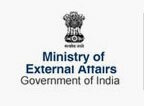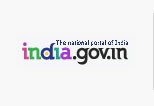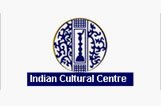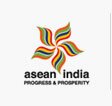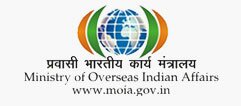|
Home › Speech of Hon'ble Speaker of Lok Sabha on "Orientation and Development for Parliamentarians" at the 23rd Conference of Speakers and Presiding Officers of the Commonwealth (CSPOC) at Kota Kinabalu, Malaysia.
Speech of Hon'ble Speaker of Lok Sabha on 'Orientation and Development for Parliamentarians' at the 23rdConference of Speakers and Presiding Officers of the Commonwealth (CSPOC) at Kota Kinabalu, Malaysia on 12thJanuary 2016. Hon'ble Chairperson, Delegates, Ladies and Gentlemen: I am greatly privileged to initiate this Session on 'Orientation and Development for Parliamentarians' at the 23rd Conference of Speakers and Presiding Officers of the Commonwealth. This being the last Session, let me take this opportunity to thank the Parliament of Malaysia and the Hon'ble Presiding Officer and the Secretariat for making excellent arrangements here and for the gracious hospitality extended to us. We will be carrying back with us fond memories of your beautiful country and the friendly people who helped make our stay unforgettable. The deliberations of the Conference too have been rewarding and enriching. The topics chosen for discussion during the conference 'The challenges facing the Independence of Speakers', 'The Role of Speakers in the Security of Parliaments and their Precincts', 'Parliamentary Privilege- Protecting the effective functioning of Democracies' are not only very relevant but important also. Speaker plays very important role in all these issues. Speakers are expected to be independent and neutralyet they have responsibilities and obligations towards Parliament and parliamentarians. Similarly Privilege and responsibility go together hand in hand.Capacity building and empowerment of Parliamentarians definitely plays very critical role in discharging these responsibilities and realizing these objectives. Our primary role as Speaker or Presiding Officer is to ensure orderly and effective functioning of our respective Legislatures. It is worth reiteration that any House can only be as effective as the members who constitute it. The first-time members of Parliament especially will find their new duties and responsibilities both exhilarating and exciting. As we all recognize, an elected representative performs multifarious roles. Primarily, he or she is a representative of the constituency, accountable at all times to the people who have elected him or her to the House. Secondly, he or she is also a member of a political party, although there may be independent members as well. He or she may also be member of one or more Parliamentary Committees. That being so, a member needs to harmonise these multiple and diverse roles which warrant different approaches and insights. As such, orientation and intellectual development of members are of critical importance to make sure of their effectiveness as parliamentarians which, in turn, also impacts the functioning of the Legislatures. This calls for a member to have a sound knowledge and awareness of rules, adequate understanding of the constitutional provisions and the Parliament's position in the constitutional scheme, and a good grounding in parliamentary customs, conventions and traditions. Parliamentarians, especially the national Parliaments, need to discuss larger issues on the floor of the House and not local issues, commensurate with the exalted status of the Central Legislature. Local and provincial issues should be raised in the State Legislatures. In this context, members should be familiar with the relevant constitutional provisions, parliamentary rules and procedures to raise issues on the floor of the House as there are several procedural devices available to themfor this purpose. Necessarily, a member needs to understand whether a particular issue is a matter of urgent public importance or not and whether the responsibility lies with the National Government or the State Government. On a different plane, members discuss national and international issues in the House and in the Committees, some of which may be complex, scientific and technical in nature. It is imperative, therefore, that members are adequately informed on the global thinking and country perspectives on these issues. In this regard, members will stand to greatly benefit from interactive sessions with domain experts, subject specialists and senior parliamentarians who are well equipped to share their experiences and expertise with newly elected members. Thus, informational requirements and procedural challenges before a parliamentarian today are multidimensional.Unless and until members get a definitive orientation on diverse aspects of parliamentary functioning and different perspectives on contemporaneous issues, they will be hampered in their development as effective elected representatives. The task becomes even more daunting since the time available to a member to work towards specific parliamentary matters on one's own is very limited. Without doubt, members will need appropriate capacity development and orientation which can be extended to them through institutional mechanisms within the Parliament and its Secretariat. The Speakers and Presiding Officers, play a very constructive role in this regard. Distinguished Delegates, my paper on this very theme is already before you. As I have mentioned therein, we, in the Indian Parliament, had recognized the significance of the development and orientation of Parliamentarians quite early.A visionary initiativeto put in place an institutional arrangement in our Parliament for imparting requisite orientation in capacity building to our members has been effected.The Bureau of Parliamentary Studies and Training fulfils the long felt need for institutionalized opportunities for systematic training, orientation and problem and practice oriented studies in parliamentary institutions, processes and procedures.The Bureauorganises Orientation Programmes for the benefit of members of both the Union and State Legislatures. These Programmes seek to promote a deeper understanding and appreciation of the constitutional role and position of Parliament as the supreme representative institution among members. The themes covered in Orientation Programmes include:parliamentary customs, conventions and etiquette; how to be an effective legislator?; privileges of Legislatures and their members; Committee system; legislative and budgetary processes; etc. Subjects of topical interest having a direct bearing on Parliament as the supreme people's institution with the cardinal function of securing Executive accountability to the Legislature are also covered. During these Programmes, eminent parliamentarians, senior parliamentary officials and domain experts share their views and experiences with the newly elected members. When the Sixteenth Lok Sabha was constituted, there were more than 300 first time members in the 545-member House. I was very keen that the Bureau does facilitate their orientation and development, and accordingly, the BPST conducted two Programmes where experts sat with the new MPs, discussed specific topics, and enlightened them on various topical issues. I am happy to inform you that the Bureau has been organizing customized programmes for parliamentarians of a large number of countries from around the world, particularly from the Commonwealth community. These include short-duration study visits and capacity building programmes organized in India or abroad. Hon'ble Presiding Officers, we are of the considered view that capacity development is not a one-time exercise at the beginning of a new House. Rather, it should be an on-going exercise spread over the life of the House. Ofcourse, overtime, MPs get to familarise themselves with practices and procedures but when it comes to issues that are raised in the House periodically, they have to be regularly updated and informed of topical themes. In this context, Lectures are organized by domain experts on subjects of topical interest with a view to facilitate members in comprehending the problems in a more effective manner. These lectures covered a wide range of topics from Climate Change and Water Conservation to Right to Information, India's challenges to meet the Millennium Development Goalsetc. A large number of MPs have regularly made use of these Lectures to enhance their understanding of contemporary challenges before decision making. The Lok Sabha Secretariat offers a specialized Research, Reference and Library Services that regularly provide support to the members of Parliament. TheResearch Service strives to keep members informed on a continuing basis on the current national and international issues by regular publication of specialized Books, Brochures, Background Notes, Information and Legislative Bulletins, etc. We offer the Members' Reference Service which organises the dissemination of factual, objective and latest information to the members within the time stipulated by them. The facilities provided onlinefall under various categories such as factual data, statistics, etc. in response to members' written reference requisitions; preparation of Reference and Background Notes and Fact Sheets on important topics, etc.The objective of all these endeavours is to ensure the capacity development of our members of Parliament. The SRI has started working on issues that are usually seen as very complex and technical such as financial and fiscal issues, international trade, investment and technology related issues, etc. Workshops/Lectures have been organised under this initiative, on Sustainable Development Goals, Goods and Services Tax, the Unorganized Sector etc.I am pleased to share with you that Chairpersons and a large number of MPs have found this exercise very beneficial to augment their knowledge of issues before Parliament and to gain a proper perspective on several challenges before the nation, nationally and globally. Distinguished Delegates,I firmly believe that in Parliamentary democracy, every issue can be discussedand there cannot be a better forum than the House to Discuss,Debate andDisagree. But in the larger public interest I would add two more 'Ds' Discipline and Decorum to avoid Disruptions and Decide issues.These objectives can be realized if our parliamentarians are empowered through capacity building programmes tobecome effective parliamentarians.They need to be given proper orientation and assistance so that they can make aninvaluable difference to the lives of their constituents and contributepurposively towards strengthening and deepening democracy. I would like to conclude with the hymnwhich impresses upon us: विद्याददातिविनयंविनयाद्यातिपात्रताम्। meaning that: "Knowledge gives humility, from humility, one attains worthiness, From Worthines, one acquires wealth; from wealth good deeds (righteousness) follow and then happiness. Thank you. |
